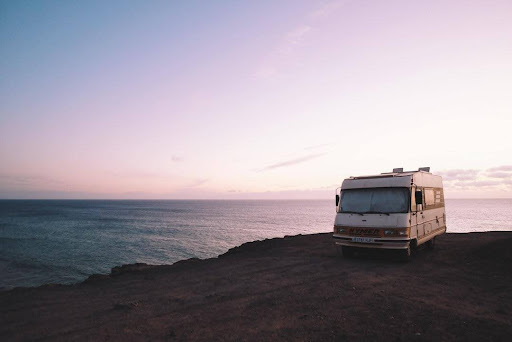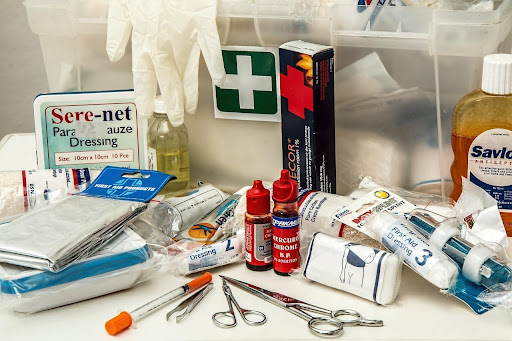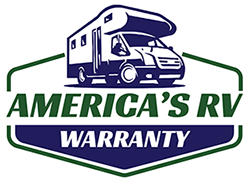Camping is one of America’s most cherished pastimes. While some prefer to pitch a tent around a roaring fire, RV camping is rapidly rising in popularity. Although it’s easy to simply rent out an RV camping spot by the lake and plug into the utilities, many enjoy the challenge of camping out completely off the grid. Known as RV boondocking or wild camping, this type of excursion allows you to become fully immersed in the natural environment, far away from the bustle of modern conveniences. While boondocking can be an exciting adventure, it’s important to be prepared ahead of time to avoid unpleasant surprises. Read on to learn more about the fundamentals of boondocking, how it’s done, and the supplies and equipment you’ll need.
The word "boondock" hearkens to a place off the beaten path, often where there is no electricity or water available. With that said, boondocking doesn’t always require that you’re 100 miles from civilization. With Wallydocking or Lotdocking, RVers will camp for a few days in a large parking lot or outside a casino. Another form of boondocking is Moochdocking, where you park your RV on private land with the owner’s permission. However, true boondocking—also called wild camping or dry camping—involves camping your RV in a remote location.

Boondocking is a great way to explore hidden vistas, observe wildlife, and reconnect with nature. However, it’s critical to plan your trip carefully so you don’t run into trouble. Here are some basic logistical tips to help ensure your next boondocking adventure is a success.
Before you go boondocking, you’ll want to check the laws in the area where you plan to travel. Some states and cities are fairly lenient towards boondocking, while other areas of the country can be a little more strict regarding where you can boondock and for how long. Check online to see if there are any restrictions or regulations regarding boondocking before you park in an unfamiliar area. You can also download a boondocking mobile app to reveal various free camping spots near you.
Severe weather can be an unpleasant surprise when boondocking, especially if you’re off-trail. You may park in a beautiful, dry area one day and wake up to a flooded morass the next, leaving you stranded longer than expected. Alternatively, thunderstorms bring the potential of hail, high winds, or even tornadoes. To avoid these issues, it’s best to constantly check weather forecasts to stay ahead of any potentially dangerous weather conditions that could negatively impact your trip.

It’s always a good idea to bring along the tools and equipment needed to address basic mechanical issues that may arise. This includes one or more spare tires, jumper cables, a socket set, pliers, and several flashlights in case you have to perform repairs at night. However, since not all mechanical problems are an easy fix, you may also want to locate an RV repair professional near the area where you plan to camp ahead of time just in case something goes wrong.
With boondocking, there are no utility connections to provide you with fresh water. For this reason, you’ll want to take steps to keep water waste to a minimum. Some water conservation methods include keeping your morning shower brief, installing low-flow faucet heads, or investing in a composting toilet. If it’s raining, you can also collect the rainwater in buckets for various non-potable uses, like flushing your toilet or refilling your gray water tank.
It’s not unusual to lose cell service when boondocking, so it’s important to make sure your loved ones know your travel itinerary in case something goes wrong. Consider keeping a CV radio on hand or a satellite phone so you have a way of contacting help no matter where you’re located. Be aware also that boondocking in the wilderness will increase your chances of running into potentially dangerous animals like mountain lions, wolves, or bears. Stay aware of your surroundings and be sure to keep any trash tightly sealed to help keep wildlife away from your camp.
Off-grid RV camping is much more enjoyable when you’re well-prepared. While there’s nothing wrong with "roughing it" without a few amenities, you’ll want to make sure a few fundamentals are covered. Here are some critical things to keep in mind before you go boondocking.
Make sure your refrigerator is stocked with plenty of food and drinking water before your trip. Just in case you encounter problems with your refrigerator or run out of power, be sure to keep several days worth of non-perishable dry goods such as rice and beans in the cabinet, as well. Additional snacks that are great for boondocking include peanut butter and jelly sandwiches, beef jerky, nuts, and pre-portioned tuna packets.

Remember that with boondocking, you could end up miles away from the nearest person. For this reason, you’ll want to be prepared for any type of emergency situation. Make sure you have at least one fire extinguisher and a first aid kit aboard your RV at all times. For encounters with wild animals, it’s also a good idea to invest in some bear mace. Consider purchasing some basic survival gear, as well, such as tools for starting a fire, fishing equipment, flashlights, rope, and a compass.
Always bring at least one extra propane tank along when you go boondocking. However, you should also have a backup plan for powering the battery in case you deplete your propane reserves unexpectedly. Consider investing in solar power to ensure you can continue running your appliances and lights even if you can’t provide fuel to the generator.
Getting reliable internet to your RV while boondocking can sometimes be a challenge, especially in areas where cell signal is weak. To solve this problem, you can look into purchasing satellite internet or a cellphone signal antennae. If you’re boondocking in an empty parking lot, you can use a cellphone signal booster to simply tap into the public Wi-Fi networks of surrounding businesses.
With boondocking, you’ll often encounter uneven terrain. Parking your RV on a sloped surface can be dangerous. For one thing, any imperfections on the ground can cause weight to be distributed unevenly, potentially damaging your tires and suspension system over time. In addition, most standard RV refrigerators need to be level to function properly. Failing to keep the RV level can potentially cause your RV refrigerator to overheat and even cause a fire. Invest in some high-quality leveling blocks to solve this problem. While some people will simply use wood blocks, this material tends to decay fairly quickly, so it’s better to buy higher-quality leveling blocks made from durable polyethylene or rubber.
Boondocking can take its toll on your RV, so it’s a good idea to take steps to protect your investment. This is where getting an extended RV warranty comes into play. At America's RV Warranty, we provide comprehensive RV coverage plans to protect you from costly emergency repairs and towing services. Our RV warranties cover a wide range of common issues, from drivetrain and electrical problems to appliance or AC repair.
With all the essentials covered, you’re now ready to embark on your next boondocking adventure. However, there are some extra things to consider that can make your trip a little easier. Here are a few additional boondocking tips to keep in mind.
Constantly washing dishes can quickly deplete your fresh water tank, so you may want to bring plenty of paper plates and disposable cutlery on your trip. Alternatively, you can fill a spray bottle with some potable water exclusively for washing dishes or simply use a wash basin so no water goes to waste. For cleaning your hands, try using sanitizer instead of washing with soap and water to further reduce water consumption.

Before going on an extended boondocking trip, take some time to get to know your RV battery inside and out. Test the battery out at home to determine how long power essentials before needing a recharge. To remove any guesswork from the equation, you can download an RV battery app that tracks your power usage in real time and the exact amount of battery time you have left.
One of the most exciting aspects of boondocking is discovering secluded areas with flourishing wildlife and untouched natural habitats. This is why it’s important to follow the Leave No Trace ethos of responsible camping. Any organic waste can attract animals to the campsite, so be sure to keep any trash tightly sealed inside your RV during the trip. When it’s time to leave, check to ensure you haven’t left any litter on the ground and avoid taking anything from the campsite that doesn't belong to you.
Boondocking is one of the most fun and rewarding ways to camp in your RV. By planning carefully and following a few tips, you can enjoy your trip with far fewer inconveniences or headaches. If you’re still uncertain about boondocking, you may want to try out Wallydocking for a night in an area not far from home so you can get a sense of what to expect during more remote excursions. Before long, you’ll have the confidence and experience to begin boondocking like an expert, no matter where you go.
